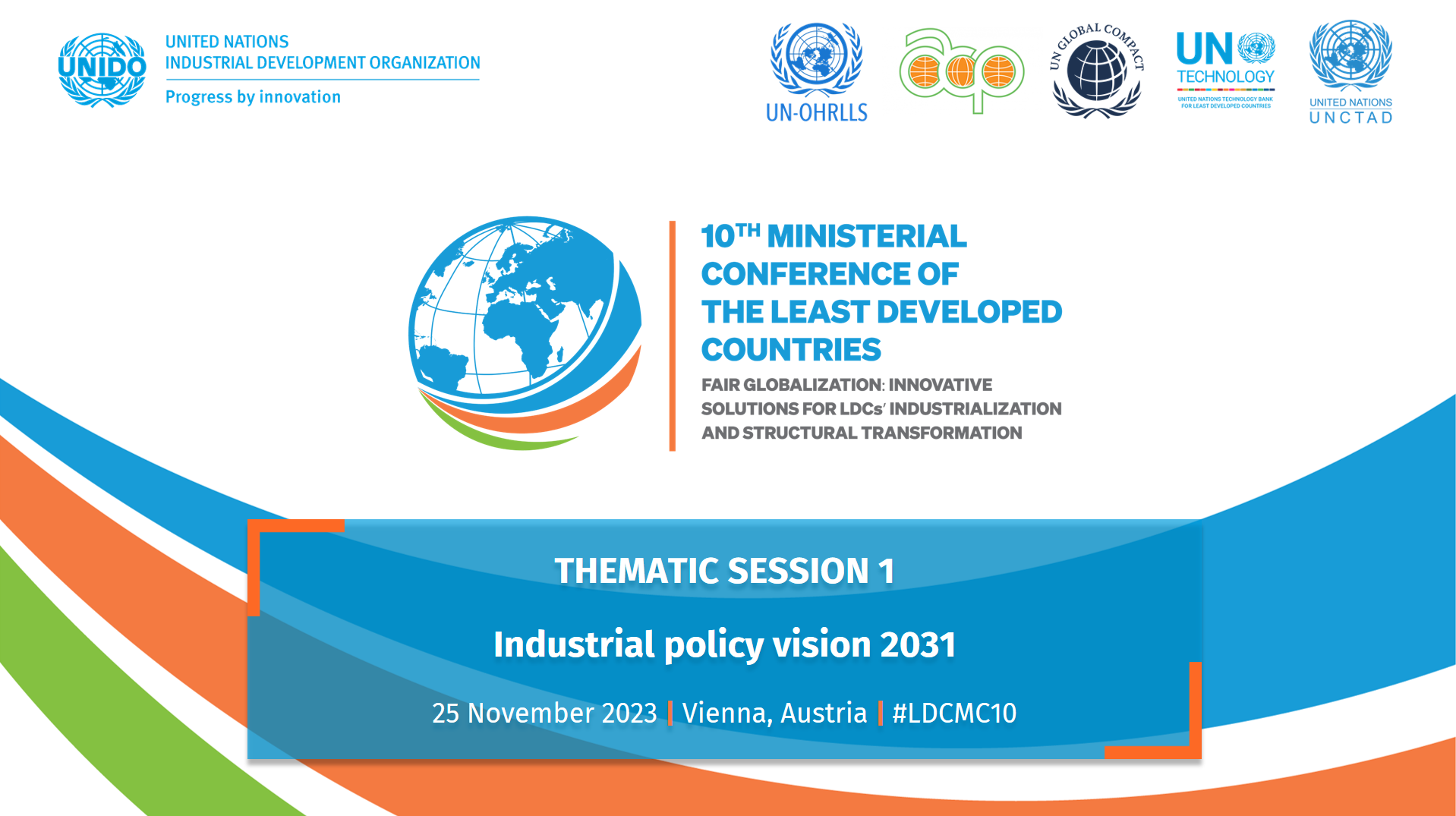


BACKGROUND
A key economic challenge facing LDCs and other developing countries in the contemporary global context is how to build and transform production structures to enhance productivity and economic growth in a way that is both inclusive and environmentally sustainable. An attendant goal should be to expand the market through increased regional and global value chain participation and exports. Indeed, it is recognized by the OECD that “to address the new development challenges, some developing countries are implementing industrial policies to sustain growth by diversifying and upgrading domestic production.”[1] This underscores the point that “development is a moving target” and that industrial strategy and policy need to be informed by an evidence-based approach.
In this regard, UNIDO offers a wide range of industrial policy services that are grounded in empirical evidence and integrate solid research and policy analysis, as well as the use of reliable and timely statistics. UNIDO policy advisory services aim to enhance the technical, policy and normative knowledge base for inclusive and sustainable industrial development (ISID), strengthen institutional capacities, and foster multi-stakeholder partnerships and industrial cooperation at the country, regional and global levels. Capacity development lies at the core of UNIDO’s industrial policy services and comprises analytical, operational and political capabilities, which are assessed at the individual, organizational and system resource level. UNIDO supports Member States in developing these competencies and skills along all stages of the policy cycle.
Moreover, to provide tools to LDCs’ endeavors of development, the Doha Programme of Action 2022-2031 (DPoA) manifests a new generation of renewed and strengthened commitments between the least developed countries and their development partners, including the private sector, civil society, and governments at all levels.
As such, in line with the Doha Programme of Action 2022-2031, UNIDO has developed its Operational Strategy for the Least Developed Countries (LDCs) emphasizing a number of industrial policies in LDCs to enable the development of sustainable supply chains, accelerate climate action, reduce poverty and hunger, increase industrial production and create more productive jobs.
Implementation of these industrial policies can lead LDCs towards inclusive and sustainable industrial development (ISID) in compliance with UNIDO’s mandate and may forge industrialization and structural transformation towards an irreversible graduation path.
OBJECTIVES
Thematic session one brings together international high-level representatives from the Regional Economic Communities, development and financial partners as well as the private sector to forge public-private discussions on the industrial policy visions 2031, in line with DPoA 2022-2031 and the Sustainable Development Goals of the Agenda 2030. The discussion will emphasize the following:
Session one will place the discussion in the context of a number of Doha Programme of Action (DPoA) focus areas including: DPoA 1 with focus on investing in people and eradicating poverty; DPoA 2 with focus on leveraging science, technology and innovation; DPoA3 with focus on structural transformation; and the DPoA 4 with focus on enhancing international trade and regional integration.
[1] Source: OECD “Perspectives on Global Development 2013”. Available here: https://doi.org/10.1787/persp_glob_dev-2013-en